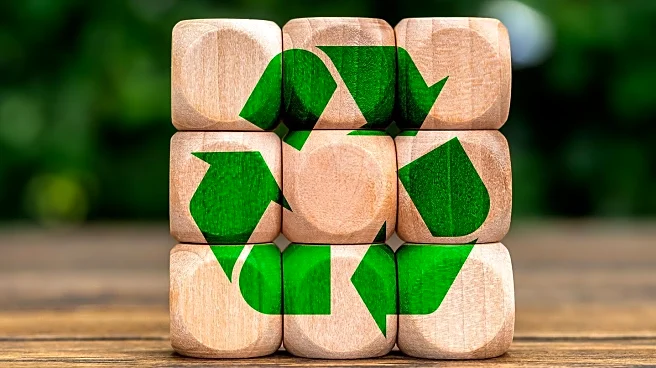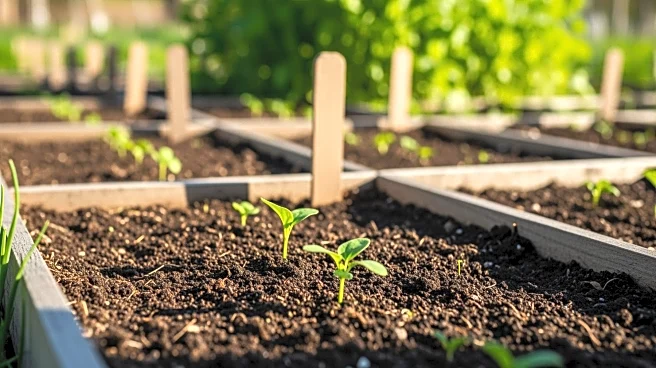What's Happening?
In Australia, community-led toy swaps are gaining traction as a sustainable practice to tackle waste and promote environmental consciousness. Jenna Condie, a social scientist, has been organizing regular children's clothes and toy swaps since 2022, allowing families to exchange items they have outgrown but are still in good condition. These events have seen increasing participation, with 85 families attending the most recent swap. Toys in good condition are donated to the Salvation Army for resale, while others are sorted and recycled. The initiative aims to shift consumption practices and normalize climate action, providing a platform for community engagement and support during economic challenges.
Why It's Important?
The toy swap movement reflects a broader trend towards sustainable consumption and reducing landfill waste. With Australians discarding approximately 27 million toys annually, these swaps offer a practical solution to minimize environmental impact. By encouraging reuse and recycling, the initiative helps reduce the amount of plastic waste entering landfills. It also serves as an educational opportunity for children to learn about the sharing economy and environmental responsibility. The movement fosters community spirit and provides a cost-effective alternative for families, aligning with global efforts to promote sustainability and reduce consumerism.
What's Next?
The grassroots movement is set to expand with Sydney's first citywide toy swap from September 1 to 14, featuring eight community-led events across the region. Organizer Jacky Lo, director of the not-for-profit Joy of Giving, emphasizes the swap as a movement of joy and care for the planet and future generations. The initiative is expected to grow, with similar events planned in Melbourne and other parts of Australia. As the movement gains momentum, it may inspire further community-led sustainability efforts and collaborations with local councils, schools, and climate groups.
Beyond the Headlines
Toy swaps not only address environmental concerns but also highlight the cultural shift towards community-driven solutions for sustainability. They challenge the consumerist mindset by promoting reuse and sharing, fostering a sense of collective responsibility. The initiative underscores the importance of local action in driving change and encourages individuals to rethink their consumption habits. By integrating environmental education into community activities, toy swaps contribute to a long-term cultural shift towards sustainable living.








